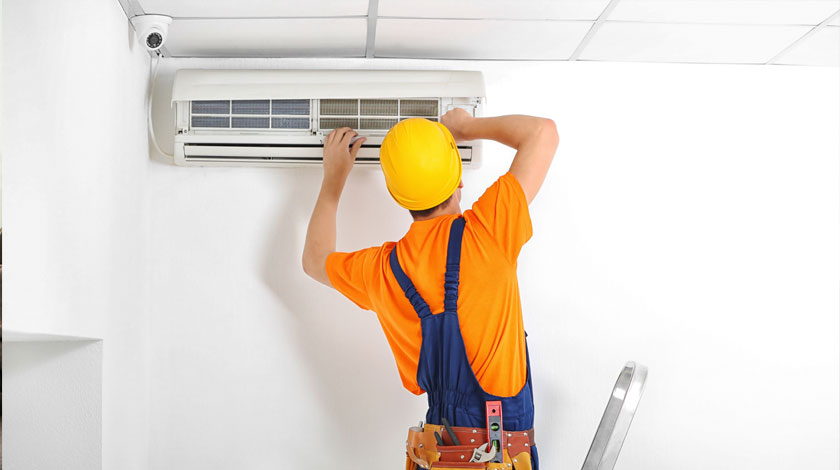Spotting a Faulty AC Capacitor: Essential Tips for Maintaining Your Cooling System
Introduction
Maintaining a comfortable indoor environment is essential, especially during those scorching summer months. One crucial component that plays a pivotal role in your air conditioning (AC) system is the capacitor. When this small but mighty part malfunctions, it can lead to larger issues with your cooling system. This article, titled "Spotting a Faulty AC Capacitor: Essential Tips for Maintaining Your Cooling System," aims to equip you with the knowledge needed to identify a faulty AC capacitor and ensure that your cooling system runs smoothly.
In this guide, we'll delve into various aspects of your AC capacitor, from its function and symptoms of failure to maintenance tips and when to call for professional AC repair in Van Nuys. Buckle up as we navigate through this essential topic.
Understanding Your AC Capacitor
What is an AC Capacitor?
An air conditioning capacitor is an electrical component that stores energy and helps start the compressor and fan motors within your AC unit. Think of it as a power reserve that provides the necessary boost for these components to operate effectively.
Types of AC Capacitors
There are generally two types of capacitors used in air Season Control Heating & Air Conditioning best ac repair & install company conditioning systems:
Understanding these types can help you identify potential issues more effectively.

Symptoms of a Faulty AC Capacitor
Recognizing Early Warning Signs
Often, you might notice subtle signs that indicate your capacitor is on the fritz. Here are some common symptoms:
- AC Unit Won't Start: If your unit fails to turn on, it could be due to a bad capacitor.
- Humming Sounds: A humming noise without operation is often a telltale symptom.
- Frequent Cycling: If your AC turns on and off frequently, the capacitor might not be holding a charge properly.
Visual Clues
Sometimes, it’s not just about sounds or performance; you can also look for visual clues:
- Bulging or Leaking: Check the physical condition of the capacitor. If it's bulging or leaking fluid, that's a clear sign of failure.
- Burn Marks: Look for scorch marks around connections which can indicate overheating.
The Role of Proper Maintenance
Regular Inspections
To catch problems before they escalate, regular inspections should be performed on your cooling system. Schedule annual inspections with professionals who specialize in AC repair in Van Nuys.
Cleaning Components
Dust and debris can cause strain on electrical components including capacitors. Clean around your outdoor unit and ensure airflow isn’t obstructed.
How to Test an AC Capacitor
Using a Multimeter
If you're tech-savvy enough to handle basic tools like a multimeter, here’s how you can test an AC capacitor yourself:
Identifying Bad Readings
If readings are significantly lower than expected or show no reading at all, it's time for a replacement.
Replacing an AC Capacitor
DIY Replacement vs Professional Help
While replacing an AC capacitor may seem straightforward, improper handling can be dangerous. Here are considerations:
- If you're comfortable working with electrical components and have experience, you might tackle this job yourself.
- For most homeowners, calling professionals specializing in AC repair in Van Nuys is advisable for safety reasons.
Steps for Replacement
If you opt for DIY:
Factors Leading to Capacitor Failure
Environmental Conditions
Extreme temperatures—especially high heat—can shorten the lifespan of capacitors dramatically.
Ageing Equipment
Older units tend to have more frequent issues as wear and tear take their toll on components over time.
Preventing Future Failures
Invest in Quality Parts
When replacing capacitors or other parts, always choose quality products over cheaper alternatives that may fail sooner.
Regular Maintenance Checks
Establishing a routine maintenance schedule will keep everything running smoothly and help detect potential problems early.
The Importance of Professional Help
Why Call Experts?
Sure, you could try fixing things yourself—but there are times when calling professionals makes sense:
- They have specialized tools and training.
- They can spot related issues that might go unnoticed by untrained eyes.
FAQs about AC Capacitors
1. How often should I replace my AC capacitor?
Typically, capacitors last between 5-10 years depending on usage and environmental factors.
2. Can I run my AC without replacing a faulty capacitor?
It's not advisable; running an AC with a bad capacitor can cause further damage to other components.
3. What happens if I ignore signs of capacitor failure?
Ignoring issues can lead to complete system failure which may require costly repairs or replacements later on.
4. How do I know if my HVAC technician is qualified?
Look for certifications like NATE certification which indicates they have undergone proper training and testing in HVAC principles.

5. Are there different sizes/types of capacitors?
Yes! It's important to match specifications exactly when replacing; otherwise, it could lead to malfunctions or damage.
6. Is there anything I can do myself before calling for repairs?
You can perform basic checks like inspecting visible components or cleaning areas around your unit but always prioritize safety!

Conclusion
In conclusion, understanding how to spot signs of a faulty AC capacitor is crucial for maintaining an efficient cooling system in your home or office environment. Remember that regular maintenance checks combined with timely interventions can save you from expensive repairs down the line while ensuring comfort during hot weather spells! Whether you're looking into DIY fixes or seeking dedicated professionals specializing in AC repair in Van Nuys, being informed will empower you as both homeowner and caretaker of your HVAC system! Don't hesitate—take action today!
Feel free to ask any questions regarding specific sections if you'd like additional information!